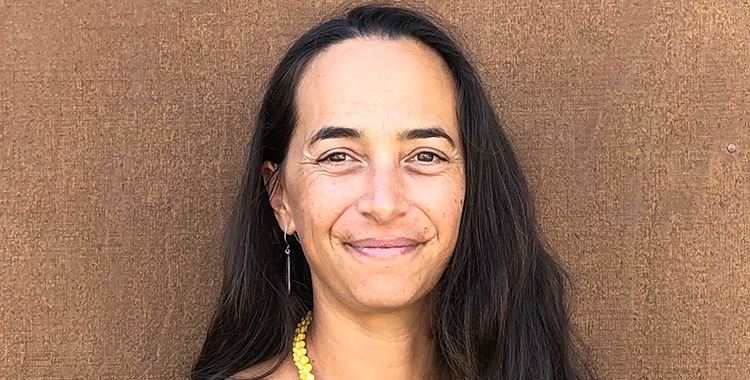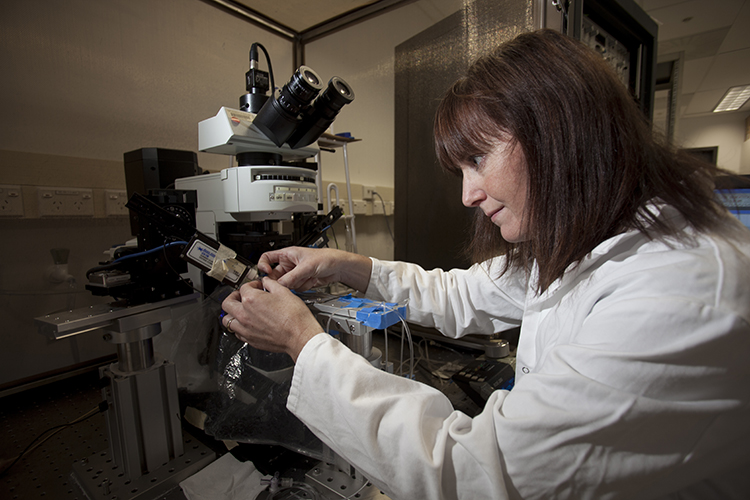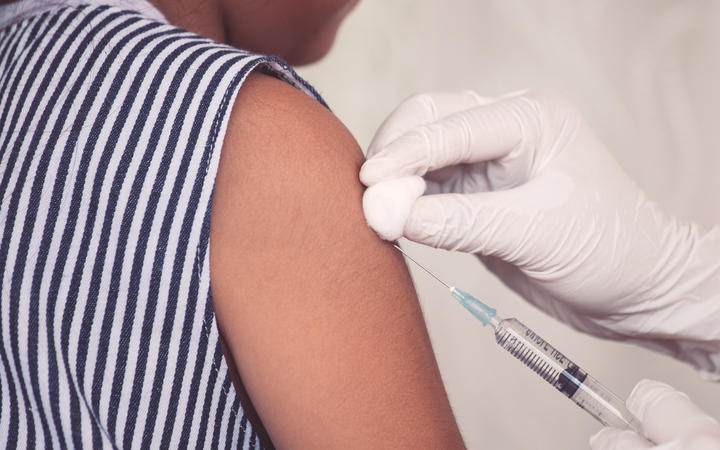The Health Research Council of New Zealand (HRC) has today announced $14.4 million in funding for research that will directly improve the delivery of healthcare services in New Zealand.
The 32 research grants funded are the first of two funding announcements for the HRC’s new Health Delivery Research portfolio. The funded projects include a project to assess the effectiveness of the free universal health services programme Well Child Tāmariki Ora, and another to investigate how best to roll out a nationwide human papillomaviruses (HPV) screening programme to reduce cervical cancer incidence and deaths in New Zealand.
HRC Chief Executive Professor Sunny Collings says this new funding is significant as it supports research that will inform changes to policy, practice or systems in New Zealand’s health and disability sector, with a stong focus on achieving health equity for Māori and Pacific peoples. It also supports researchers from across a broad range of both academic and health professional backgrounds.
“We recently redesigned our investment in health delivery research to support and develop more researchers, clinicians and other health professionals working on the frontline of New Zealand’s healthcare services – our hospitals, community health clinics and the like. For us to see tangible and ongoing improvements in New Zealand’s health system, it’s vital to have health professionals engaged in research, so we’re pleased to see so many involved in these funded projects – we’d like to see even more,” says Professor Collings.
Auckland District Health Board paediatrician Dr Alison Leversha, who works at Starship Children’s Hospital, is one of 10 researchers to be awarded a Health Delivery Research Project grant in this new funding round.
Dr Leversha and her team will examine the Well Child Tāmariki Ora (WCTO) programme, which is New Zealand’s primary way of detecting developmental and behavioural problems in children so that early interventions can be made.
“Inequities in learning, development and health are evident when children start school, and these trajectories track into adulthood with poorer educational, health and social outcomes. If problems are identified and interventions made early though, many of these problems can be prevented or reduced,” says Dr Leversha.
She says anecdotal and some research evidence suggests that the WTCO programme may actually be exacerbating inequalities.
“Emerging evidence suggests that the WTCO programme may not be identifying a significant proportion of children with developmental or behavioural needs. This is particularly true for Māori and Pacific children and those from disadvantaged communities for whom the current developmental screening tool is not fit for purpose. Improving the way we identify children's needs will ensure we can support caregivers and whānau/aiga and that all children reach their potential,” she says.
Findings will directly impact the redesign and future delivery of the WCTO programme to ensure that it reduces inequities and achieves better outcomes for all tāmariki.
Another new project led by Victoria University of Wellington’s Professor Beverley Lawton (Ngāti Porou) involves partnering with Mahitahi Hauora (Northland’s primary health entity) to provide the evidence-base for an effective national HPV screening programme for detecting changes that may lead to cervical cancer.
Cervical cancer is caused by high-risk types of HPV, and Professor Lawton says it is globally recognised that testing for HPV as a primary screening tool is more effective than the cervical smears women in New Zealand currently undergo.
“Switching New Zealand’s cervical screening programme to HPV testing has the potential to reduce the incidence of cervical cancers by 15% annually compared to the current programme, which is why the New Zealand Cervical Screening Programme is planning on making this switch in the future,” says Professor Lawton.
“We will work alongside district health boards, primary care and community groups, and the Ministry of Health to inform the national programme. We will answer the questions, would an HPV test that women can do themselves screen as many women as the present system that involves a clinician exam with a speculum? And would such a self-test make screening more accessible to all women?”
As part of this funding round, the HRC has awarded 10 Health Delivery Research Project Grants and 22 Health Delivery Research Activation Grants. The activation grants are a new initiative designed to help established or prospective researchers and research providers get ready for undertaking further health delivery research.
One of these activation grants has gone to Dr Simone Rodda from the University of Auckland who will look at how the harms associated with Internet video gaming are being compounded by the covergence of gaming and gambling.
Internet video games are one of the most popular media for connecting people globally. However, Dr Rodda says that for about 5% of the population video game play is associated with a loss of control and a range of negative consequences, including harm to social relationships, work, eating and sleeping patterns.
“Internet gaming disorder is now recognised by the World Health Organization as a source of harm, especially among young people. Anecdotal evidence suggests that a growing number of people in New Zealand with Internet gaming disorder are presenting to gambling harm prevention services for advice or treatment.”
“Our study will be the first to examine whether it is realistic and acceptable to screen and treat this disorder in gambling treatment services. It will also lead to further research by informing the training and development needs of our health workforce in this area and establishing effective treatment approaches,” says Dr Rodda.
Professor Sunny Collings says the HRC was thrilled by the response to this funding call.
“The large number of quality applications that we received exceeded our expectations, and was especially pleasing given the extra pressures placed on the health workforce due to COVID-19. It reinforces that there are plenty of active and extremely capable researchers out there who are ready and able to respond to the immediate health needs of New Zealanders.”
The following is a full list of the first 2020 Health Delivery Research Project and Activation Grant recipients. To read lay summaries about any of these studies, go to hrc.govt.nz/resources/research-repository and filter by proposal type and year (2020). Several Health Delivery Research funding opportunities were extended due to COVID-19, to give the health sector more time to respond. These will be announced in late October.
2020 Health Delivery Research Projects
Dr Philip Adamson, University of Otago, Christchurch
CT to reduce invasive coronary angiography in acute coronary syndrome
48 months, $1,331,290
Dr Tupa'ilevaililigi Ridvan Firestone, Massey University
Tihei Rangatahi Programme – Improving hauora/oranga services for rangatahi Māori
48 months, $1,397,789
Dr Brent Gilpin, ESR Institute of Environmental Science & Research
Unravelling the mysteries of yersiniosis
36 months, $1,308,050
Professor Jane Koziol-McLain, Auckland University of Technology
Improving primary care service delivery for those impacted by violence
36 months, $1,399,996
Professor Beverley Lawton, Research Trust of Victoria University of Wellington Implementing HPV primary testing to prevent cervical cancer in NZ: Te Tai Tokerau
48 months, $1,398,122
Dr Alison Leversha, Auckland DHB Charitable Trust
Reducing inequities in Well Child Tāmariki Ora developmental surveillance
36 months, $1,350,785
Dr Shay McGuinness, Medical Research Institute of New Zealand
Cryopreserved vs. Liquid Platelets for Surgical Bleeding (CLIP-II NZ)
60 months, $1,399,921
Professor Pauline Norris, University of Otago
Access to medicines: Exploring lived experience to inform policies and programmes
36 months, $1,349,520
Dr Peter Saxton, The University of Auckland
Improving blood safety and donor selection
48 months, $1,398,606
Professor Timothy Stokes, University of Otago
Do district alliance partnerships improve health system performance and outcomes?
36 months, $1,399,512
2020 Health Delivery Research Activation Grants
Dr Angela Beaton, Auckland DHB Charitable Trust
Activating communities to improve outcomes for wāhine Māori
12 months, $30,000
Dr Tania Blackmore, University of Waikato
An evaluation of a health literacy intervention for men with prostate cancer
6 months, $30,000
Dr Gary Cheung, The University of Auckland
Getting ready for the first clinical trial for Māori with dementia
9 months, $28,103
Dr Sara Filoche, University of Otago, Wellington
Reflecting informed choice in population screening: Progressing equity
12 months, $27,575
Dr Claire Gear, Auckland University of Technology
Integrated system responses for families impacted by violence: a pipe dream?
12 months, $30,000
Professor Felicity Goodyear-Smith, The University of Auckland
Activating grassroots New Zealand Pacifica participatory research
12 months, $29,239
Professor Leigh Hale, University of Otago
Maintaining of wellness of people with long-term conditions in southern NZ
12 months, $28,683
Dr Gavin Harris, Canterbury District Health Board
Correlating digital image features of breast cancer nuclei with molecular data
12 months, $30,000
Dr Nishi Karunasinghe, The University of Auckland
Relationship building – Study on stratified PSA for prostate cancer detection
12 months, $29,999
Professor Carlo Marra, University of Otago
What is the societal preference for breast cancer treatment in New Zealand?
12 months, $29,822
Professor Pauline Norris, University of Otago
Measuring Turanga Health's impact on food security and food sovereignty
6 months, $30,000
Professor Tava Olsen, The University of Auckland
Strategic next-generation metrics to ensure ED quality of care
12 months, $30,000
Mr Russell Pine, Research Trust of Victoria University of Wellington
Mental health casual video game for adolescents
6 months, $30,000
Dr Yana Pryymachenko, University of Otago
The health economic case for implementing ACL injury prevention interventions
12 months, $29,845
Dr Simone Rodda, The University of Auckland
Convergence of gaming and gambling in treatment services
12 months, $30,000
Professor Grant Schofield, Auckland University of Technology
Scoping an online ‘research ready’ lifestyle programme for type-2 diabetes
12 months, $30,000
Associate Professor Leigh Signal, Massey University
Intervening in sleep to improve perinatal mental health outcomes
12 months, $29,964
Dr Julia Slark, The University of Auckland
Optimising compassionate care in acute hospitals: building the foundations
12 months, $29,967
Associate Professor Gisela Sole, University of Otago
Patient education and self-management for painful shoulders
12 months, $27,023
Associate Professor Lee Thompson, University of Otago, Christchurch
Gut symptom investigation – South Island (GutSI-SI)
6 months, $29,680
Dr Hope Tupara, Tieki Limited
Māori Uho Kuku Apparatus (MUKA)
12 months, $30,000
Dr Karen Wright, The University of Auckland
Cerebral palsy and Māori health inequities in New Zealand
9 months, $30,000















 India
India United States of America
United States of America New Zealand
New Zealand